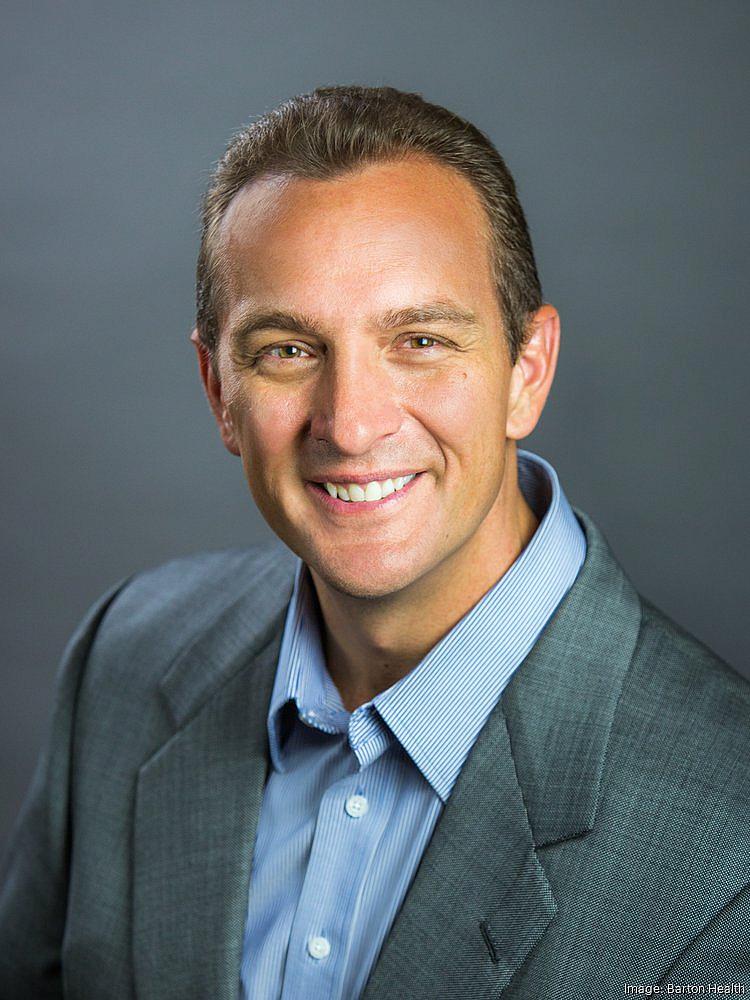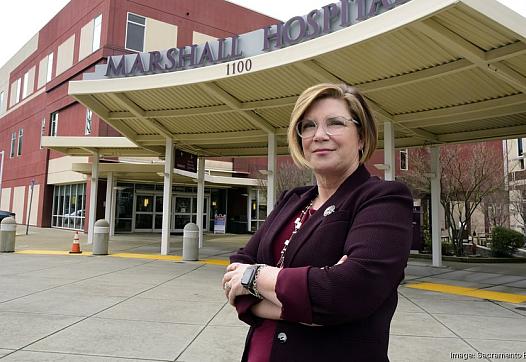'Fiercely independent' rural hospitals reject consolidation, despite potential financial benefits
This project was originally published in Sacramento Business Journal with support from our 2022 Data Fellowship

Dr. Clint Purvance is the CEO of Barton Health
COURTESY OF BARTON HEALTH
Not only do Barton Memorial Hospital and Marshall Medical Center face the challenges that come with operating in a rural region, they are also the only two independent hospitals in the Sacramento region.
“Being an independent hospital — unaffiliated with a larger health system — we must be able to independently weather bad years,” Barton CEO Dr. Clint Purvance said, in a statement. “Without a corporate office to fall back on, it is incredibly important that we are financially solvent.” Hospitals that have a similar, or greater, ratio of revenue from the Medi-Cal and Medicare programs can operate in the red if they have the safety net of a parent health care system to fall back on.
That’s the case with Methodist Hospital of Sacramento. It has the highest portion of Medi-Cal patients in the Sacramento region — in total 83% of its gross patient revenue comes from government payers, which tend to reimburse hospitals less than it costs them to provide care. Methodist has lost money in five of the last seven years, averaging a $4.5 million loss each year.
“When it was opened in 1973, it was a community-based hospital, by community members interested in having a hospital to serve members that resided here,” Methodist President Phyllis Baltz said.
But, she said, the hospital’s board of directors knew that serving that community would come with financial hardship.
They "knew it would be very challenging for the facility to continue to function as a stand-alone hospital,” she said. In 1993 the hospital joined Mercy Healthcare Sacramento — what is now Dignity Health, an arm of CommonSpirit Health — a health care giant with 140 hospitals across the country.
“That turned out to be a very wise decision,” Baltz said.
That has given Methodist more buying power for purchases, and allowed it to finance a new hospital it's planning in Elk Grove to replace its original, aging facility, even while running a nearly-consistent operating loss.
“If Methodist had continued to be a stand-alone hospital it would be challenged to have this opportunity to expand into Elk Grove,” Baltz said.
Without support from the larger Dignity Health organization, Baltz said, the hospital would have to rely on philanthropy to try to close its operating gaps and build the new facility.
“Being part of a system provides a lot of strength and support,” Baltz said.
It’s a growing trend. The Kaiser Family Foundation found that between 2005 and 2017, there were 778 hospital mergers across the country — leaving just 34% of hospitals operating independently.
During the seven years of financial records included in the Business Journal’s analysis, three cash-strapped rural California hospitals affiliated with larger systems — Tenet Healthcare Corp. took over Hi-Desert Medical Center in Joshua Tree, and Adventist Health took over operations of hospitals in Tehachapi and Mendocino County.
But El Dorado County’s hospitals are quick to point out that there are downsides to being part of a larger company as well.
“Independence also allows us to offer services based more on community needs and less on financial returns,” Purvance said.
Despite Marshall’s challenges, CEO Siri Nelson said that merging into a larger health care system was not an option for the hospital.
“We are fiercely independent, and we think that we better serve our community by being nimble and being connected closely to what’s going on in El Dorado County,” she said.
Nelson brought up an example from two years ago, when Placerville-area skilled nursing facilities saw a sudden, overwhelming outbreak of Covid-19 cases.
“We all got together as a team. We had 100 providers on a call on New Year’s Eve,” Nelson said. They came up with a plan to send “SWAT teams” of doctors and nurses into the skilled nursing facilities to test residents for Covid-19 and treat them there, so they didn’t overwhelm the hospital.
“We talked about it on New Year’s Eve. It happened the next day,” Nelson said. “The next day we had people out in the skilled nursing facilities.”
They didn’t write out formal contracts with the skilled nursing facilities. They just called to let them know help was on the way. They also didn’t need to get permission from a larger company.
“I think that’s a great, concrete example of how we can be very nimble and very reactive very quickly to do the right thing for our community, where a bigger system might take longer,” Nelson said.


